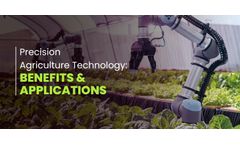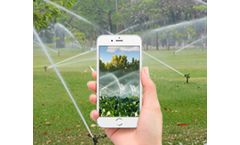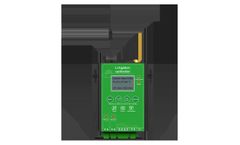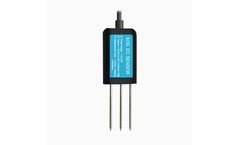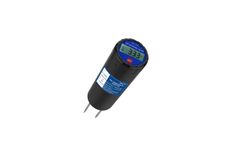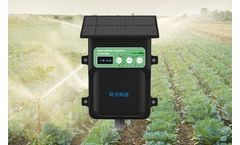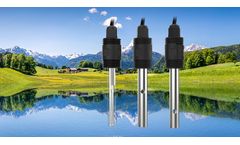Soil Moisture Level Articles & Analysis
35 articles found
Precision agriculture (PA) is the use of advanced technologies to optimize field-level management. By leveraging data analytics, GPS, IoT, and various sensors, precision agriculture enables agronomists to make informed decisions, thereby enhancing crop yield and resource efficiency. This modern approach contrasts with traditional farming methods by emphasizing precision in monitoring, managing, ...
The concept of crop rotation dates back thousands of years, with ancient civilizations such as the Mesopotamians and Egyptians employing rudimentary forms of rotation to sustain their agricultural endeavors. The basic principle behind crop rotation is alternating the types of crops grown in a particular field over time to improve soil fertility, control pests, and maximize yields. In traditional ...
Today's soil sensors can measure a wide range of parameters, including moisture content, temperature, nutrient levels, pH, compaction, and even soil microbial activity. ...
ByJXCT
Benefits of Soil Sensor Technology: Improved Resource Efficiency: Soil sensors allow farmers to optimize resource use by providing real-time information on soil moisture levels. ...
ByJXCT
These sensors can be deployed in the field to collect data on soil moisture levels, nutrient concentrations, temperature, salinity, and compaction. ...
ByJXCT
Smart irrigation helps maintain soil health by preventing excessive waterlogging and optimizing soil moisture levels for healthy root development. ...
ByJXCT
Precision Agriculture: Weather stations support precision agriculture by providing farmers with site-specific information on weather conditions and soil moisture levels. This enables targeted irrigation, fertilization, and pest management practices, optimizing resource use and reducing environmental impact. ...
ByJXCT
Benefits of Intelligent Irrigation Systems for Agriculture Improved Crop Yields: Intelligent irrigation systems can help improve crop yields by providing the right amount of water at the right time. By continuously monitoring soil moisture levels and other factors, these systems can ensure that crops receive the water they need to grow and ...
ByJXCT
This is the essence of intelligent soil sensors. These intricate devices are equipped with a range of sensors that capture crucial data about the soil, including: Moisture content: Accurately measuring moisture levels allows farmers to precisely control irrigation, ensuring optimal water usage and avoiding both ...
How Automatic Irrigation Systems Work: Automatic irrigation systems utilize a combination of sensors, advanced algorithms, and data analysis to determine the optimal amount of water for plants. Sensors are placed in the soil to monitor moisture levels, while advanced algorithms analyze the data to predict plant needs. ...
ByJXCT
Soil moisture sensor is a device for measuring soil moisture content. ...
ByJXCT
Traditionally, irrigation scheduling has relied on estimates and fixed schedules, often leading to overwatering or underwatering, resulting in wasted water, nutrient leaching, and reduced crop yields. The advent of smart soil sensor systems has revolutionized irrigation practices by providing real-time, data-driven insights into soil moisture ...
By incorporating weather forecasts, soil moisture sensors, and evapotranspiration data, these controllers enable farmers to tailor irrigation schedules to meet the specific needs of their crops. ...
Greenhouse monitoring: Horticulturists utilize soil moisture sensors to maintain optimal moisture levels in greenhouses, ensuring the health and growth of plants and flowers. ...
III. Benefits of Using Soil EC Sensors Precision Irrigation: Soil EC sensors enable precision irrigation by providing real-time data on soil moisture levels. ...
Understanding Soil Electrical Conductivity: Soil EC is influenced by various factors, including soil texture, organic matter content, moisture levels, and the presence of soluble salts. ...
Automated Scheduling: The controller enables automated scheduling based on factors such as crop type, soil moisture levels, weather conditions, and water requirements. This eliminates the need for manual scheduling and ensures optimal irrigation timing. c. Precise Water Distribution: The V3 Irrigation Controller uses advanced sensors to measure ...
Hey there, fellow cannabis growers! Need to know how to fix root rot? Look no further! Welcome to our guide on fixing root rot and ensuring the health and vitality of your precious cannabis plants. We all know how disheartening it can be to see your plants suffer, but fear not! In this article, we’ll dive deep into understanding root rot, identifying its signs, implementing prevention ...
Inefficient irrigation practices lead to water waste, reduced crop productivity, and soil salinity. Therefore, agricultural water management strategies must focus on maximizing irrigation efficiency while minimizing water, energy, and fertilizer use. ...
If you’re a cannabis grower, you know that healthy plants are essential for a successful crop. However, even with the best intentions and care, nutrient burn can occur and cause significant damage. Nutrient burn is a common problem that can affect cannabis plants. It leads to a range of cannabis leaf symptoms and ultimately affects the plant’s growth and yield. In this article, we ...

